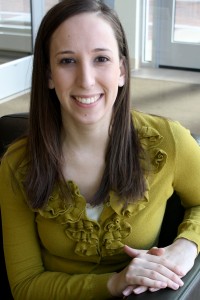By Ben Murray
The coolest thing about working at the Graduate School is that it allows me to meet a variety of people who have dedicated themselves to an array of different passions. Talking to these people is a rewarding experience because their excitement is often contagious and directs my interest to areas I would have never thought to look. The most recent example of this phenomenon? Gerontology. For those who don’t know, Wikipedia (don’t judge, it’s a good source) defines Gerontology as the study of the social, psychological, cognitive and biological aspects of aging. It turns out that studying the aging process can provide us with some great insights on how to live a healthy and fulfilling life. I met with Baylor’s Dr. Lindsay Wilkinson to discuss this interesting topic in more detail.
Dr. Wilkinson hails from Rofford Illinois (not far outside Chicago for the southerners who know nothing about other states [me]). For her undergrad, Lindsay went to Loras College in Dubuque, Iowa where she double majored in psychology and sociology and minored in gender studies. After much deliberation as to whether she should go the psychology or sociology route, Lindsay chose sociology and was accepted into the masters program at Purdue. In her time there, she received PhD’s in both Sociology and Gerontology. She says she was initially interested in studying inequality but didn’t know which direction to take it until her mentor mentioned that she could study health inequality. Lindsay says that this was something of an “aha!” moment for her. She had never thought of health in those terms before. As she explained to me, health is really the ultimate form of inequality. “Everyone is going to get older and die some day and so that carries a lot of significance,” Lindsay said. “If we can understand that better, we can improve our quality of life.”
As a medical sociologist, studying health inequality means a lot more than simply going over people’s medical records. For Lindsay’s most recent project, she looked at the great recession and its effect on adults 51 and up. She wanted to understand the effect that money strain can have on an individual’s mental health (turns out it has a big effect). Her work earned her the junior scholar award—a national honor handed out by the Gerontological Society of America. To gather data for her study, Wilkinson used the largest source of information on older adults: a massive 30,000 person study funded by the National Institute of Health. The study has gathered detailed records on the same people’s lives every two years since 1992. Thanks to the success of her previous project, Lindsay will now be able to take the next step in her research. She plans to look at resiliency amongst the elderly during these difficult times. This means analyzing participants whose mental health was unaffected by their difficulties and trying to discover which characteristics set them apart from the rest. Answering this question could have exciting implications in learning how to maintain a healthy state of mind when challenges arise in our own lives.
Dr. Wilkinson currently teaches research methods, sociology of aging, and will soon begin a health class in the fall. When she’s not conducting research or teaching, she enjoys relaxing with her husband and two dogs Pax and Lexi (named after Chicago sports legends), going to sporting events and watching good movies. We’re very thankful to Dr. Wilkinson for her time and look forward to hearing about the discoveries she will make on the next project!

Leave a Reply